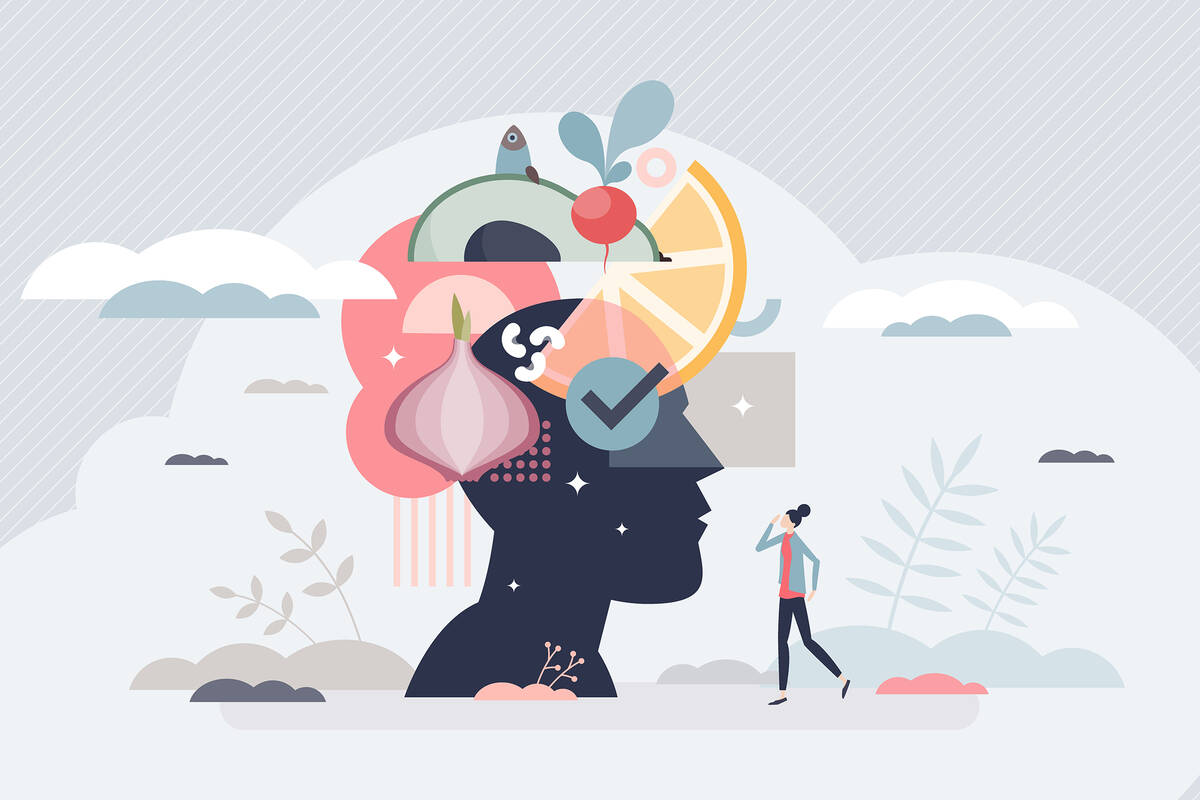How diet affects the brain over a lifetime
A wealth of research shows that what people eat affects the body’s ability to ward off heart disease and stroke. And a growing body of research finds what’s good for the heart is good for the brain, revealing the same risk factors that lead to heart disease contribute to Alzheimer’s disease and other dementias.
It begs the question: If we can eat our way to better heart health, can we also boost brain health with a better diet?
Experts say the answer is “yes.” And it’s never too soon to start.
Food and fetal development
“The effects of nutrition on brain health can start right away with the maternal diet,” said Dr. Rebecca MacPherson, an associate professor in the department of health sciences and a member of the Centre for Neuroscience at Brock University in St. Catharines, Ontario, Canada.
Research shows what a woman eats — or doesn’t eat — during pregnancy can affect her baby’s brain development, she said.
For example, folate, or vitamin B9, plays a critical role in fetal brain development, and mothers who don’t get enough may give birth to children with birth defects and neural tube defects. Folate is found in vegetables such as Brussels sprouts, asparagus, leafy greens and peas, as well as beans, fruits, nuts, seafood, eggs, dairy products, meat, poultry and grains. But it’s also included in prenatal vitamins to ensure women are getting enough.
A child’s mental health also can be affected by mom’s diet during pregnancy. Research shows expectant mothers who eat a high-fat diet increase their baby’s risk for mental health and behavioral disorders, such as anxiety, depression, attention deficit and autism spectrum disorders.
Omega-3 fatty acids also promote a baby’s brain development in utero. They are found naturally in cold-water fish, such as salmon and sardines, nuts, seeds and plant oils.
But it doesn’t stop there. The influence of nutrition on brain growth and development persists throughout life. It can help children perform better at school, help maintain better cognitive function in adulthood and ward off dementia as people age.
Brain food for youth
Omega-3’s brain benefits continue during the early months of life. A study published in the journal Child Development in 2009 found that newborns fed formula enriched with omega-3 fared better on problem-solving tasks in their ninth month than those who didn’t get the supplement.
A child’s diet has the biggest impact on brain development during the first two years of life.
As children’s brains develop, “neurons are building connections and there’s a lot of cell growth,” MacPherson said. “A child’s diet provides the energy and fuel to build those connections. If you have a poor diet that promotes inflammation, it will inhibit that growth.”
During childhood and adolescence, poor nutrition has been shown to harm brain development and cognitive function, leading to poor school performance. Research has shown that replacing simple carbohydrates or saturated fats with complex carbohydrates and healthy fats could improve short-term memory. Other studies have linked higher consumption of fish, vegetables and fruit, especially berries, to better academic achievement.
Adulthood
Insufficient levels of omega-3s have been implicated in mood disorders and cognitive loss in adulthood, while higher consumption of these fatty acids has been shown to increase learning, memory, cognitive well-being and blood flow to the brain.
While there are direct effects on the brain from what people eat, a poor diet also results in other problems that may lead to poor brain health, MacPherson said.
“A poor diet — one high in saturated fat, processed foods and sugar — can result in weight gain or adiposity over time,” she said. That increases the risk for insulin resistance, diabetes and heart disease, “and all of these systemic diseases increase the risk for cognitive decline in the brain. But a good diet that maintains a healthy heart can be good for the brain.”
Defining a brain-boosting diet
When looking for ways to improve brain health through better eating, experts warn against focusing too much on single foods or nutrients and looking instead at dietary eating patterns. Many studies have found adherence to healthier eating patterns may lower dementia risk, a topic gaining attention as the population ages.
Researchers have increasingly designed studies comparing the effects of eating a Western diet to Mediterranean eating styles, the DASH diet — short for Dietary Approaches to Stop Hypertension — and a relatively new eating pattern called MIND that combines the Mediterranean and DASH diets to optimize brain health.
A 2021 study in the Journal of Alzheimer’s Disease suggested greater adherence to the MIND diet contributed to cognitive resilience — the ability to maintain cognitive function despite damage to the brain — in older adults. Researchers had previously shown the MIND diet may slow cognitive decline and lower the risk of dementia.
“A bad diet would be the Western diet, which includes a lot of processed foods, saturated fats and is high in sugars,” MacPherson said.
Making the change
If you’re not already eating a healthy diet, making that change could be difficult, said Dr. Kevin Volpp, director of the Penn Center for Health Incentives and Behavioral Economics at the University of Pennsylvania in Philadelphia.
“To form a new habit, you have to change an old habit,” said Volpp, a physician who also is a professor at Penn’s Perelman School of Medicine and the Wharton School. “And old habits die hard.”
Most people in the U.S. aren’t eating the way they should, he said. “Among Americans, the statistics are pretty sobering. More than 9 in 10 consume too much sodium and not enough fruits and vegetables. We have to recognize that that is the starting point and part of why we have such high rates of heart disease and stroke.”
It’s not necessarily that people don’t know how to eat healthier, said Volpp, who co-authored a recent paper in Nature Reviews Neurology on the importance of diet for maintaining brain health. People might not have easy access to healthier foods or enough money to pay for them, he said. But even when they do, it’s not easy to resist the temptation of tasty but often unhealthy foods people have become accustomed to eating.
“People are wired to focus on immediate gratification,” Volpp said. “They often make choices based on what they’re already doing instead of careful consideration of the alternatives.”
But those choices matter. While it’s unclear how neuroinflammatory processes affect the hippocampus — the part of the brain that controls memory and cognition — numerous studies have found links between eating a high-fat diet, neuroinflammation and cognitive impairment.
“It’s important for patients to recognize that any single indulgence may not seem to matter — and probably doesn’t — but over time, their choices will influence their long-term health,” Volpp said. “And we need to be aware of that in terms of the patterns we put in place.”


















